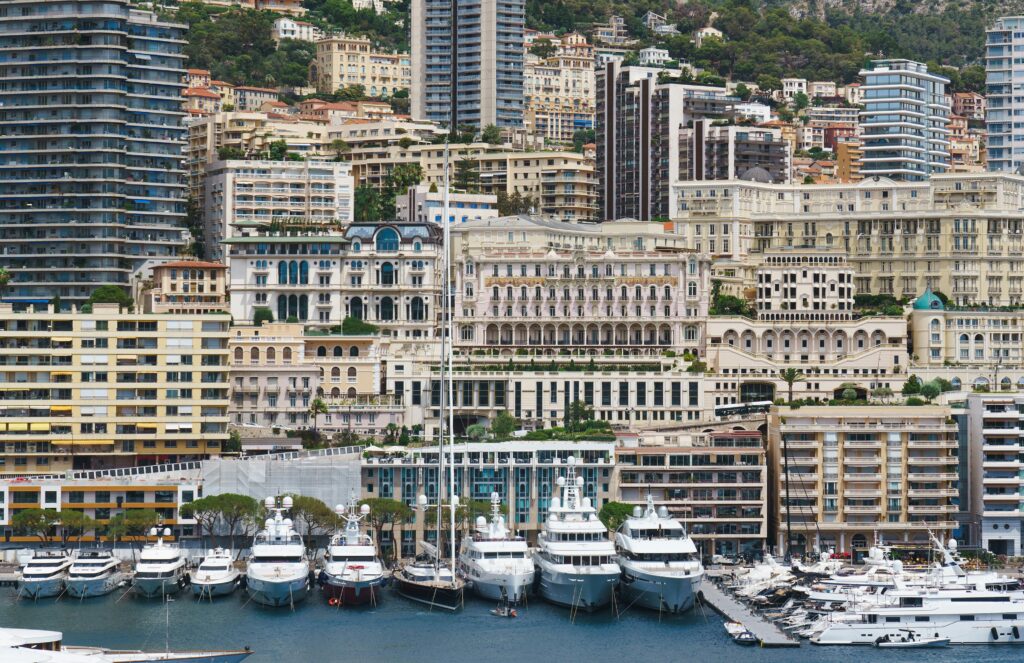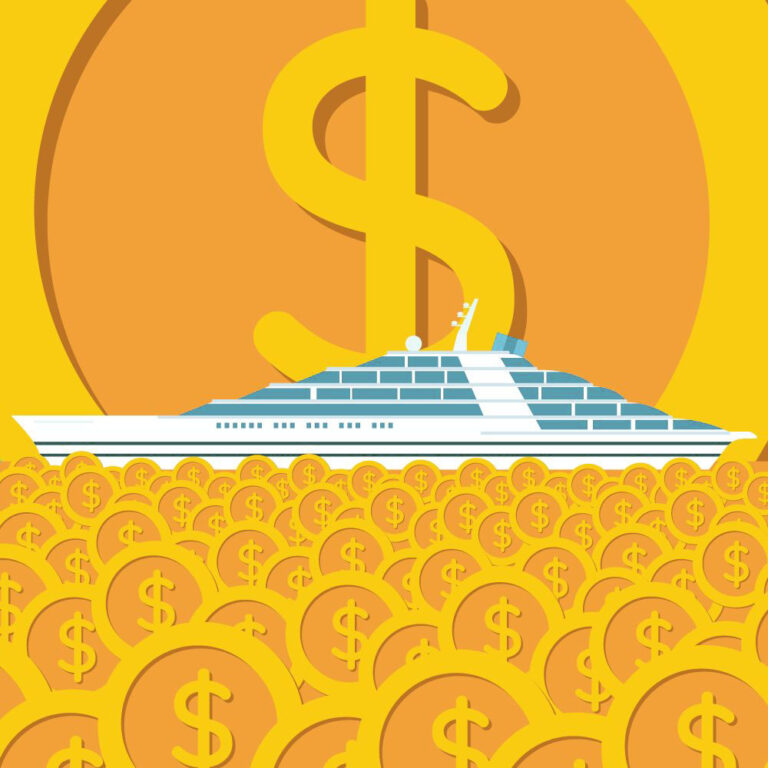The Monaco Yacht Show 2025
The Monaco Yacht Show, the biggest superyacht show in Europe, starts this week.
From the 24th to the 27th of September, Port Hercule, hopefully bathed in sunshine, is filled with some of the most luxurious boats worldwide, both alongside the quays and anchored out.
If you are not working on one of the yachts at the show, is it worth a visit?
It most certainly is.
If you are already working at the show, do take the time to look around when you are off duty.
The show will be absolutely packed with possible buyers, buyer representatives, stall holders, yacht brokers, crew and a huge number of members of the public, milling about, collecting freebies, and just hanging out.
The key point to remember is that if you attend the show as yacht crew, you are working, marketing Brand You.
You may have a job at the moment, but the more contacts you make, the easier it should be to find the next one.
Six points to remember:
- Look as presentable as possible in the yachting style. Polo shirt, long shorts (guys), Skort/Shorts (girls)/Docksiders, Neat haircut, no visible piercings or tattoos. You need to look like a professional, potential crew member, not a possible buyer of a yacht or browsing member of the public.
- Make sure you have an up-to-date C.V., including any additional skills (second language/ fitness trainer/hairdresser, etc) and take some with you.
- Make sure you have an up-to-date medical certificate and STCW.
- The whole idea is to talk to as many people as possible, so that your name gets out there. Crew agents, both the ones you signed up with and new ones/crew on other yachts/suppliers, where relevant. Catch up with crew you already know. Take notes and collect cards. Do any of the crew you know work on a boat at the show? If so, try a visit.
- It is likely to be very hot, so make sure that you remove your sunglasses when talking to someone.
- Look carefully at the major yachts on display, so that you can talk knowledgably about them if asked.
The Monaco Yacht Show is more or less the end of the summer season in the Med.
You may be remaining on your current yacht for the winter and either going to the shipyard (in La Ciotat, for example) or you might be preparing for a winter season in the Caribbean. Either way, the few weeks after the Monaco show usually give you some downtime to assess your yachting career so far and plan the next step.
Salaries
This is one of the most important issues for yacht crew.
Are you being paid fairly for your work?
Does your current salary fit in with industry norms?
Have you got a contract?
If you are starting in the industry, the general starting salary now is
Deckhands/Stewardesses are Eur/USD 3,000/month.
For more experienced crew, salaries are as follows:
Bosun: Eur/USD 4,500 – 5,000/month
Chef: Eur/USD 4,500 – Eur/USD 7,500 – 10,000 + depending on boat size and experience
First Officer: Eur/USD 7,000 – 8,000/month
Chief Steward/Stewardess: USD/Eur 8,000 – 14,000/month
Purser: USD/Eur 10,000- 14,000/month
Engineer: Entry level USD/Eur 3,500- USD/Eur 6,000
Chief Engineer: Eur/USD 8.500 – Eur/USD 25,000/month + rotation
Captains: Eur/USD 10,000- 30,000 (depending on boat size and experience.)
Clearly, you would like to earn as much as possible, but there are other factors to consider, for example, rotation, charter boats and research vessels.

Rotation
Rotation is all about crew retention by improving crew quality of life.
Whilst working on a boat can be hard work, but fun, you are living with those you work with, and that can become difficult after a while.
Rotation used to be reserved for some captains and chief engineers only. However, with more awareness of crew welfare and also the desire of yacht owners and managers to hold onto good crew, rotation has become much more common.
If you are at entry level, you are most likely to be offered a 3 months on/1 off rotation. Remember, you are a new crew member, so this is a good deal. You may be hearing about other boats offering better deals, but not everything you hear is true.
As you climb your career ladder, you could be offered 2 months on/2 months off. This is what most crew are aiming for.
If you are offered a 2-month on/2-month off rotational position, your lifestyle choice may be more important than a larger salary. More time to spend with family/pursue other interests or business ideas, have a rest/holiday/adventure…
Family concerns are also why some crew will be prepared to take a lesser salary on a boat that travels very little.
Charter boats
The actual salaries may not be the highest in the industry, but you stand to make significant additional money from tips. Charterers normally pay an additional 5-15% of the charter fee as a tip for the crew, and it is possible that it could be more.
This means that even deckhands and stewardesses could increase their salaries by an additional USD/Eur 50,000/year. However, the charter boats that make these kinds of tips work their crew very hard, so it would be sensible to bear the following in mind.
Be very clear that you won’t be doing this long-term. No one can work this hard indefinitely.
Plan what you are going to do with the money. Don’t just fritter it away.
Research Vessels
There are now quite a few research vessels that are superyachts. They tend to travel to remote/exotic areas of the world to do their research, which may sound exciting and glamorous. The salary ‘on board’ can be attractive, but remember it is the scientists, research teams and divers who are doing the interesting stuff.
As a yacht crew, you will be cleaning the vessel, putting whatever is required into the water, making foo,d etc.
So you are doing your normal job, but you are out in the middle of nowhere, often for several weeks, and there is no possibility of going out for an evening, meeting people off the boat, etc.
For obvious reasons, these boats do offer rotation, but it isn’t the job for everyone, so do think hard before accepting a position on a research vessel.
I’m happy with my salary. What’s the next step?
You are unlikely to remain in yachting all your working life. The average is ten-fifteen years, often much less for women.
The key point is not only that you are working in yachting, but you are on a financial journey.
There is not much point in earning a great salary if you don’t save for your future.
Even if you averaged Eur/USD 5,000/month for ten years, you would still have earned USD/Eur 600,000, and you would have hardly had to spend any of it.
Your food/clothes/travel/medical insurance/accommodation will be paid for, and most of you won’t have to pay any income tax.
Will you have spent it or saved it?
If you have saved it and most single yacht crew can easily save most of their salary, then when you leave yachting, you should have a life-changing sum saved to power the next stage of your life.
If you have spent it, this will also be life-changing, but not in a positive way.
Don’t let this be you.
The majority of the crew are young. With the exception of some captains, chief engineers and pursers, you don’t see many crew over 50. Most crews have a ‘sell by’ date, and you need to be realistic and plan for that.
It is definitely easier to spend than to save. Spending is immediate satisfaction, saving is for the future, which is far harder for most of us to get our head around.
Don’t beat yourself up. If you are a natural saver, that’s great, but most people need help.
Financial Planning and Yachting Financial Solutions
This is where a financial planner comes in. They help identify your goals for your yachting career and beyond, work out how much you will need to save to achieve them and then work with you to ensure you keep on track for your goals.
Yachting Financial Solutions is a financial planner and mentor. If you would like to reach out, contact us now, arrange a call or WhatsApp us to discuss.
Look forward to hearing from you!







